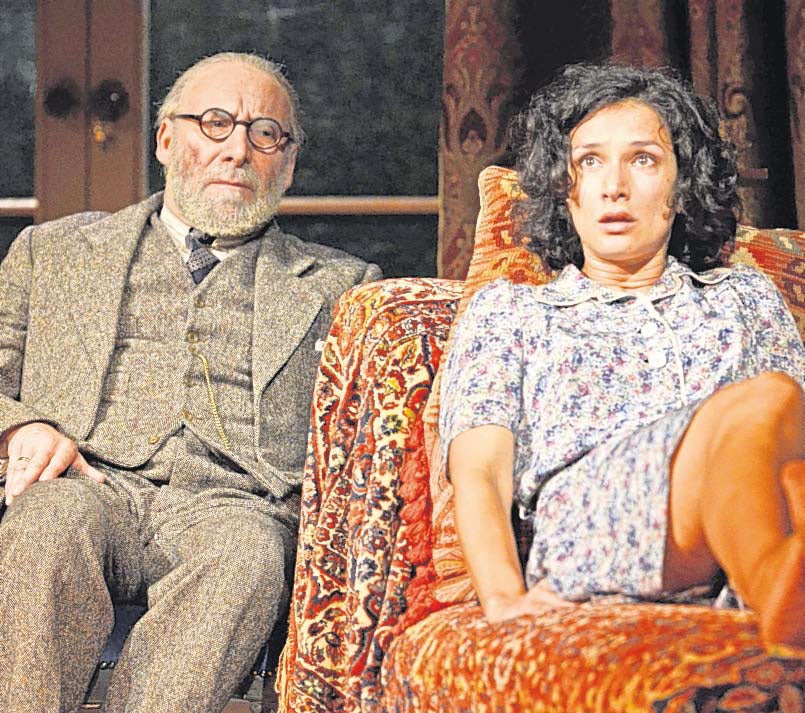
Your support helps us to tell the story
From reproductive rights to climate change to Big Tech, The Independent is on the ground when the story is developing. Whether it's investigating the financials of Elon Musk's pro-Trump PAC or producing our latest documentary, 'The A Word', which shines a light on the American women fighting for reproductive rights, we know how important it is to parse out the facts from the messaging.
At such a critical moment in US history, we need reporters on the ground. Your donation allows us to keep sending journalists to speak to both sides of the story.
The Independent is trusted by Americans across the entire political spectrum. And unlike many other quality news outlets, we choose not to lock Americans out of our reporting and analysis with paywalls. We believe quality journalism should be available to everyone, paid for by those who can afford it.
Your support makes all the difference.Farce has its affinities with the Freudian psychoanalytic
method. Both are mechanisms for exposing the repressions and the guilty secrets we are desperate to hide – the former for sadistically comic, the latter for therapeutic purposes.
This is an insight that Terry Johnson developed in Hysteria, a play which is part dazzling intellectual farce, part controversial casestudy as it turns the tables on the great Viennese master and puts him on his own couch.
First seen at the Royal Court in 1993, it is revived now by the author in a compelling, if slightly under-energised, production. The action is set in the dying Freud’s Hampstead study in 1938.
In a cheeky fabrication, the play pretends that our hero has recently seen Rookery Nook and the proceedings initially resemble a dark parody of a Ben Travers romp. A young woman, who materialises like a rain-sodden spook, knocks at the French windows and when he refuses her a consultation, she tries to blackmail him by shedding her clothes (including her Freudian slip).
She has to be bundled into a closet where she is naturally discovered by the egomaniac surrealist painter Salvador Dali, who arrives on the scene to discover a head-bandaged Freud holding a bicycle covered in snails and with his arm down a Wellington boot.
“Maestro,” he exclaims in awe, “what Dali merely dreams, you live!” The twist is that the young woman turns out to be an avenging angel, determined to bring home to Freud the damage he wreaked when he crucially (and self-protectively?) revised his view that hysteria is caused by actual child abuse to the idea that recovered memories are fantasies born of desire.
There are some awkward shifts of gear between the slapstick and the discursive soul-bearing, and I am not sure that Johnson solves the problem by slowing down the former.
The playing, though, is expert. Antony Sher’s splendid Freud retains a tweedy gravitas and depth of hinterland through all the multiple indignities, and Indira Varma impressively varies the levels of intensity as the young woman.
David Horovitch lends a lovely comic edge to the suspiciousness of Freud’s doctor, while Will Keen is all head-tossing narcissism and Hispanic unintelligibility as the posturing Dali in this morphine-fuelled dream of a play that spectacularly metamorphoses into one of his Surrealist landscapes, replete with a nightmarish premonition of the gates of Auschwitz.
Now at Oxford Playhouse (01865 305305) to 1 September; then Cambridge Arts Theatre (01223 503333 ) 3 to 8 September
Join our commenting forum
Join thought-provoking conversations, follow other Independent readers and see their replies
Comments